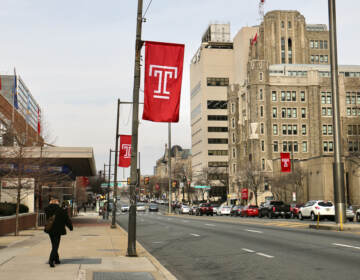Philly SRC meeting dominated by charter conversion critics
-
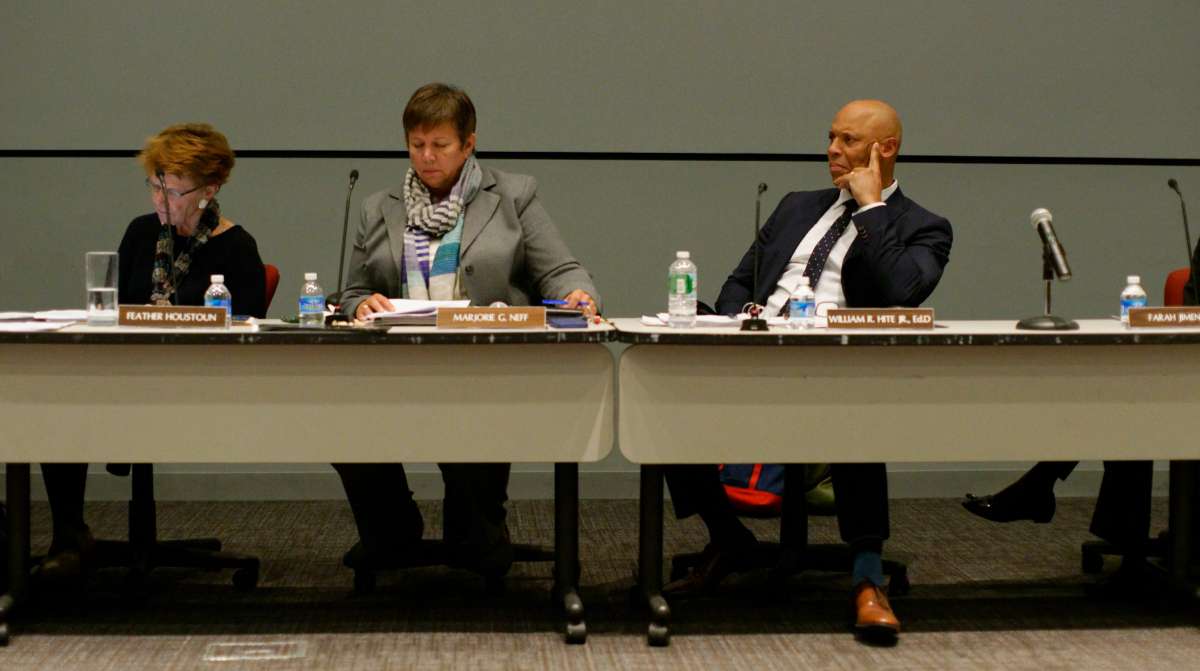
Members of SRC listen to a speaker. (Bastiaan Slabbers for WHYY)
-
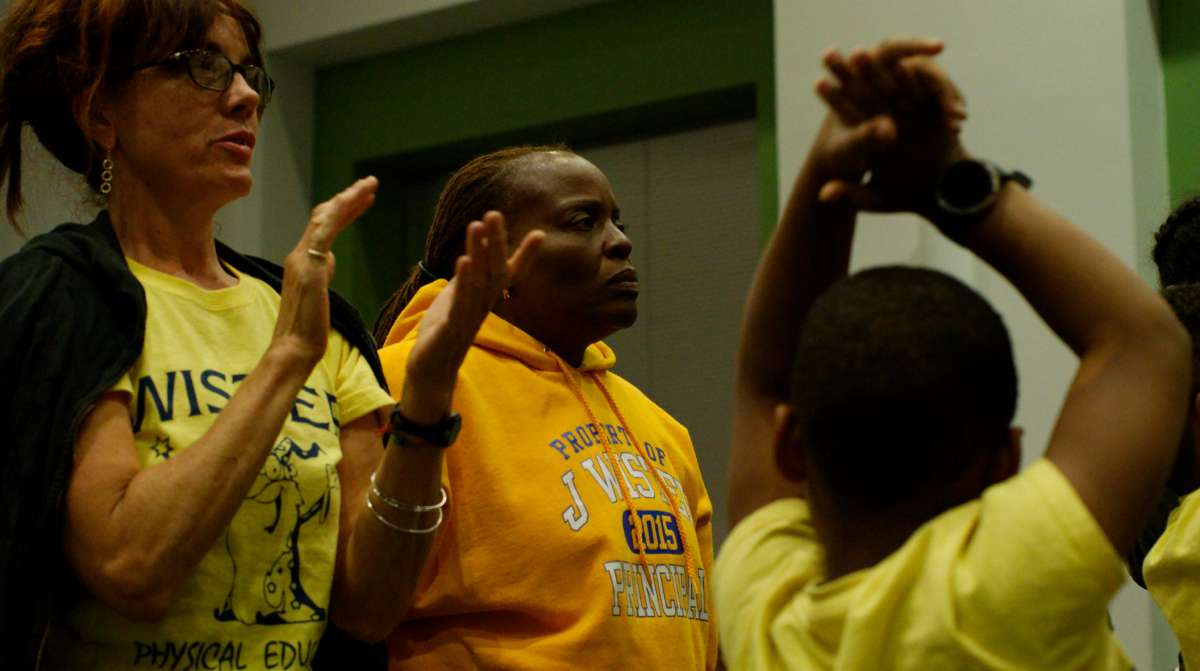
Wister phys-ed teacher Robin Lowry (left) and Donna Smith, Principal, pictured at the October 2015 SRC meeting. (Bastiaan Slabbers for WHYY)
-
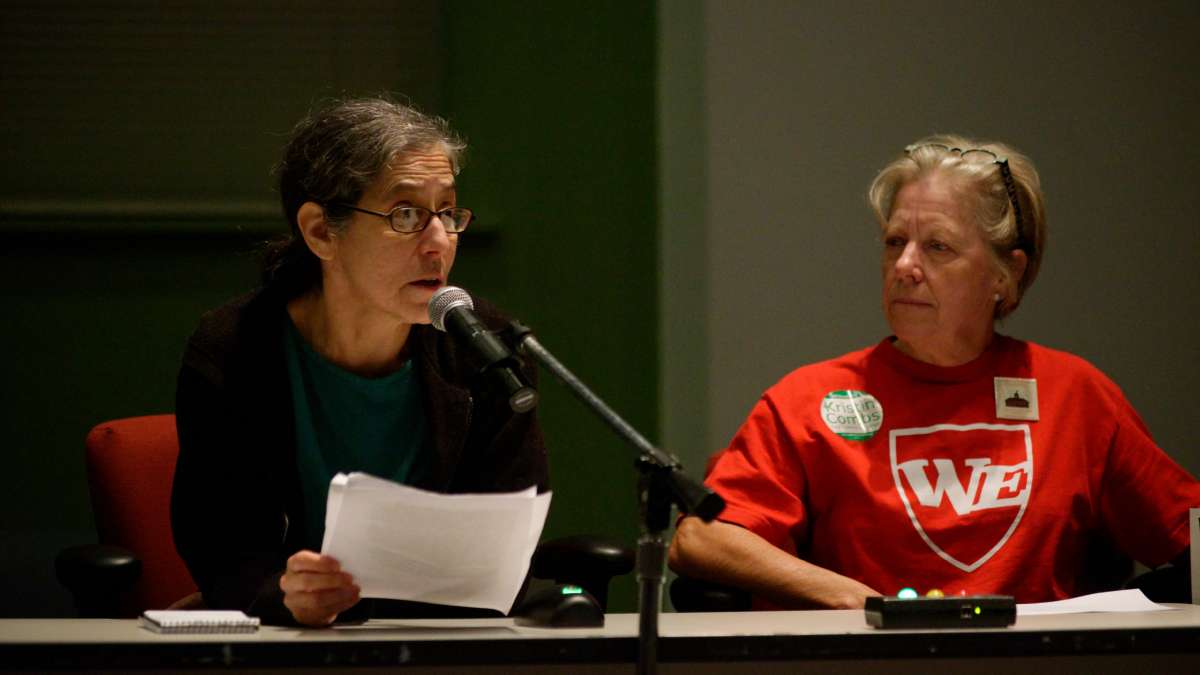
Retired teachers Karel Kilimnik and Diane Payne gave back-to-back testimony against Hite's proposal. (Bastiaan Slabbers for WHYY)
-
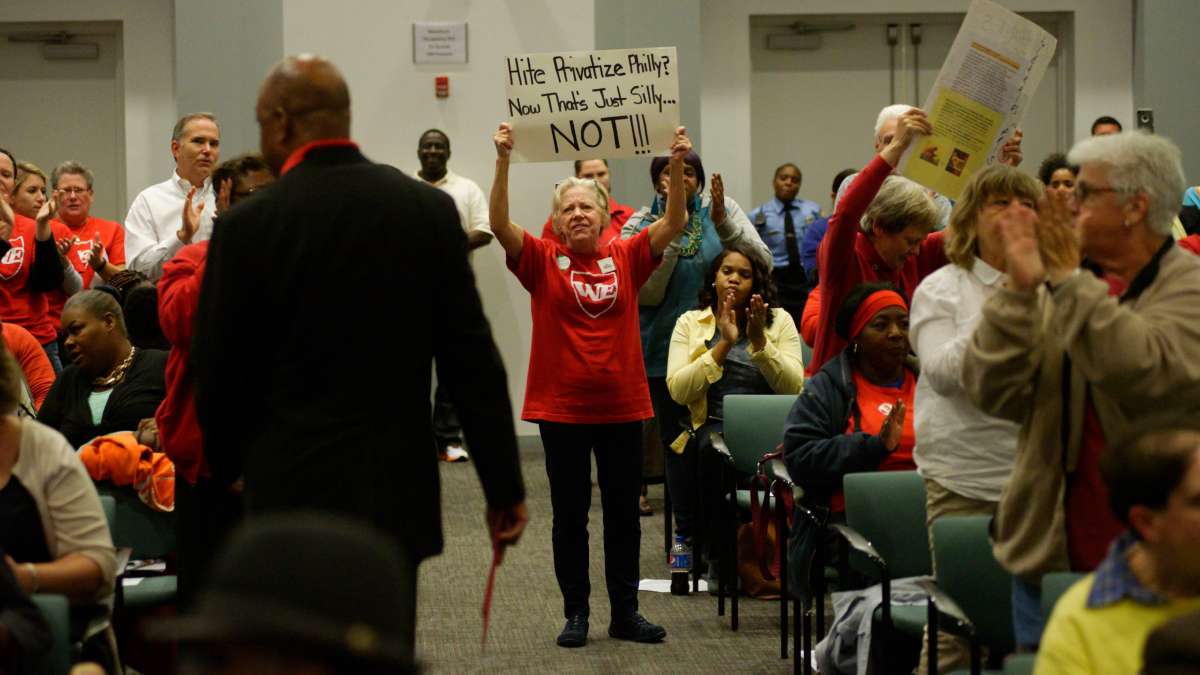
Retired teacher Diane Payne jeered Hite's decision during the October SRC meeting. (Bastiaan Slabbers for WHYY)
-
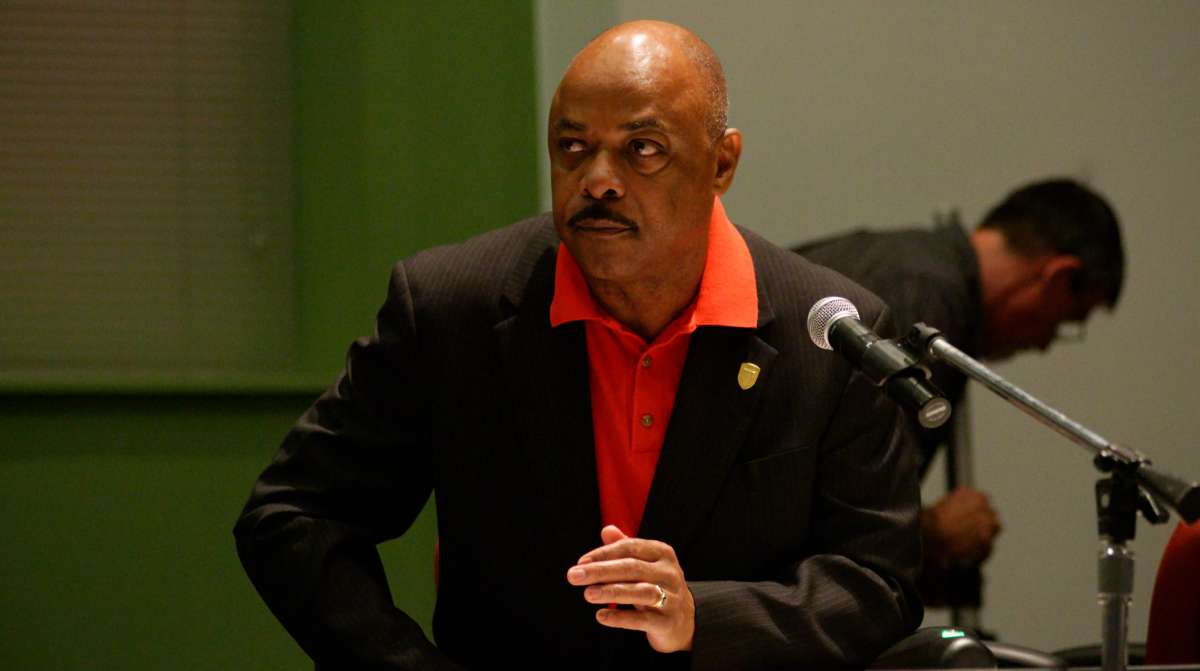
PFT President Jerry Jordan is one of the 40 speakers from the public at the SRC meeting on Thursday. (Bastiaan Slabbers for WHYY)
-
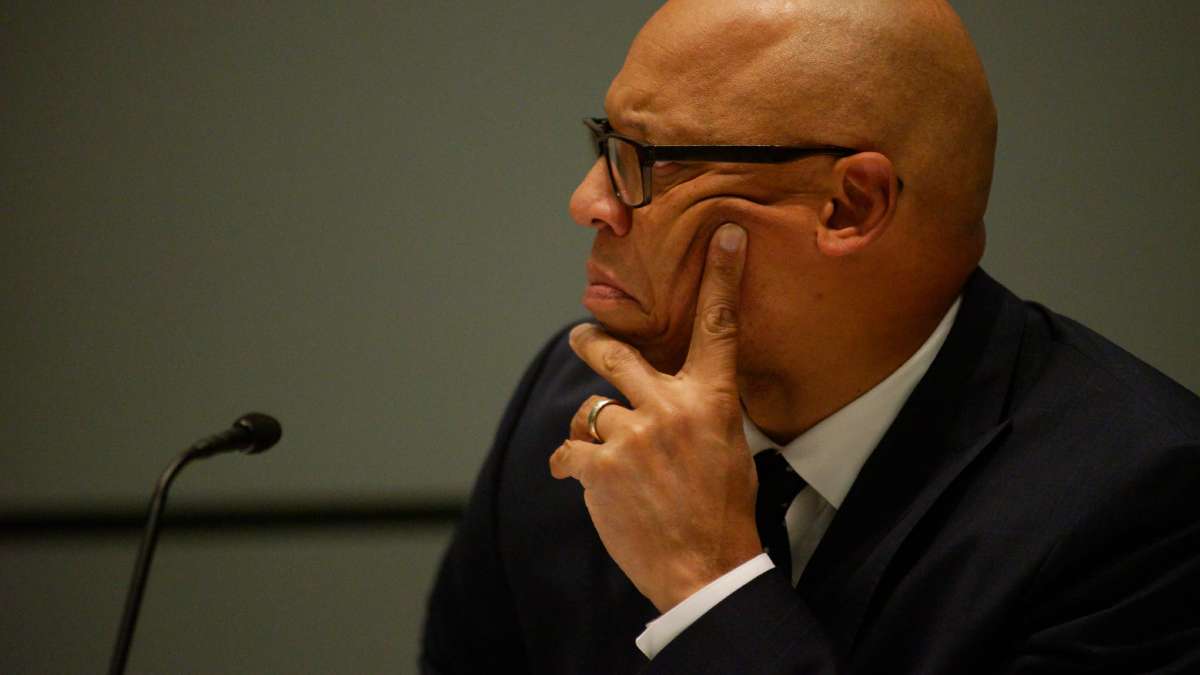
SDP Superitendent Dr. Hite is seen listening to a speaker. (Bastiaan Slabbers for WHYY)
-
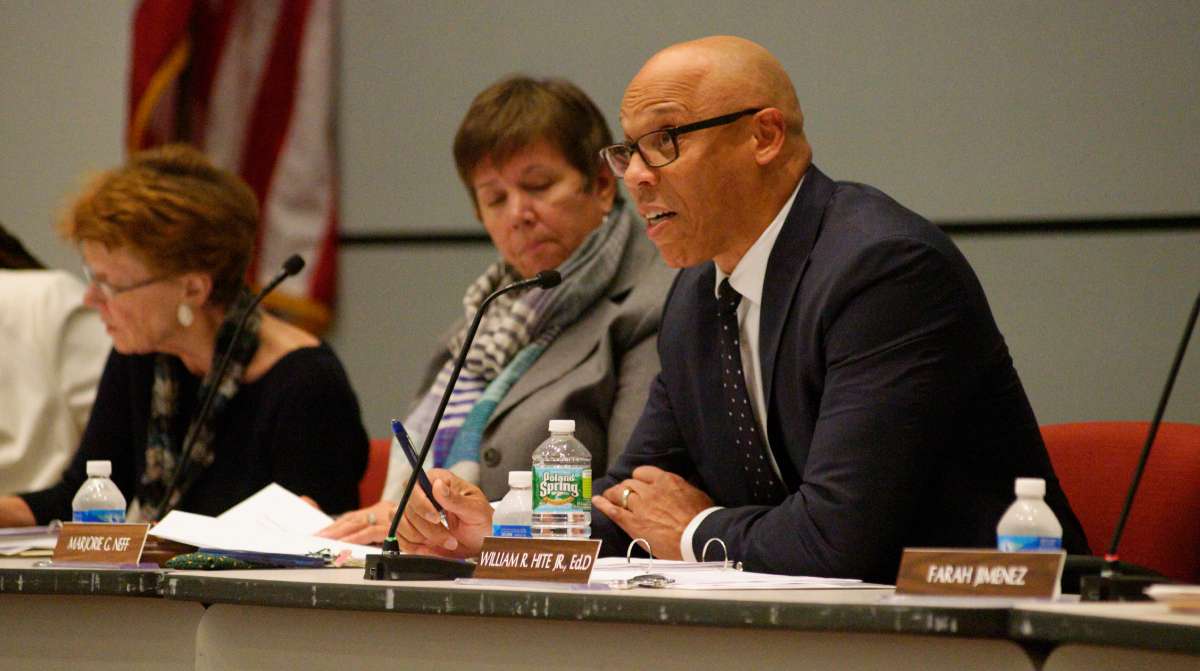
Superintendent William Hite reacts to a comment from the audience at the October 2015 SRC meeting. (Bastiaan Slabbers for WHYY)
-
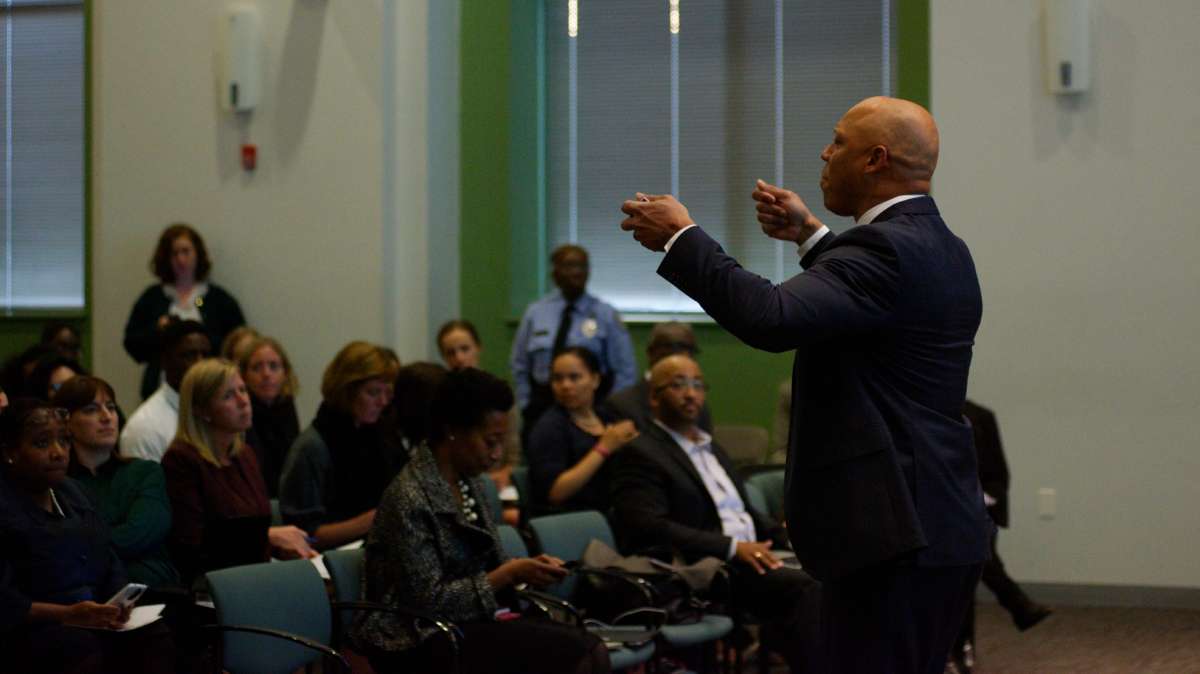
Superintendent Dr Hite speaks to the room when at the beginning of Thursday' SRC meeting the amplifier system is not operating. (Bastiaan Slabbers for WHYY)
-
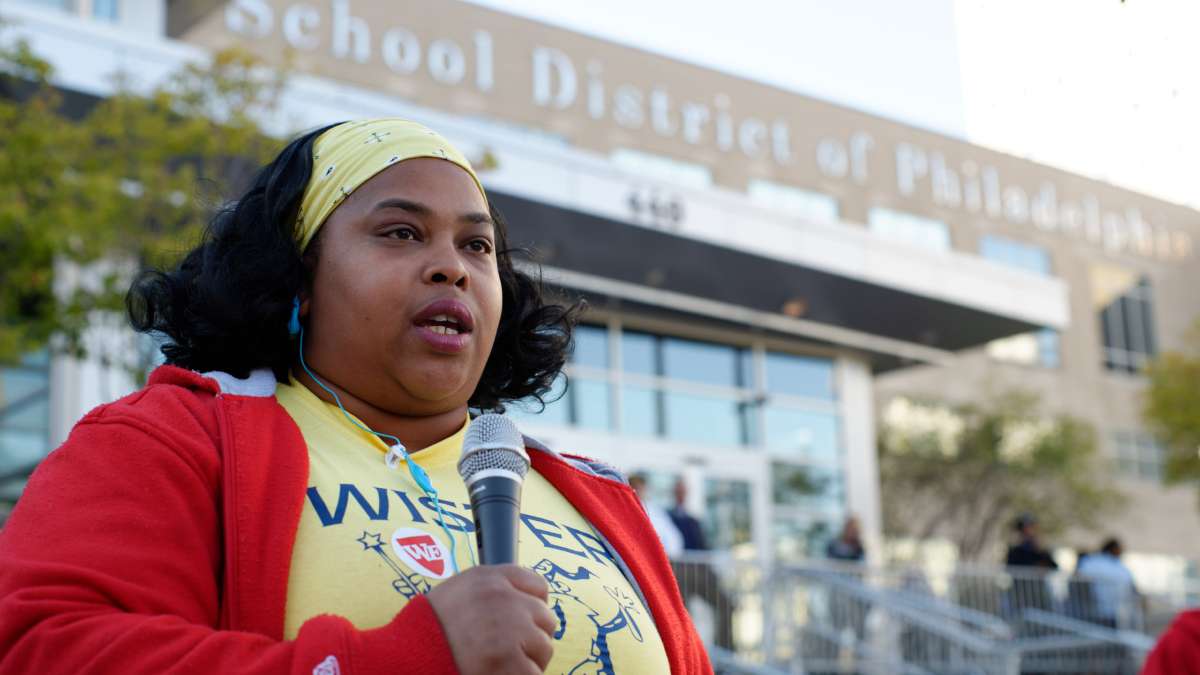
Kenya Nation, parent at John Wister Elementary, speaks outside SDP, ahead of the Thursday SRC meeting. (Bastiaan Slabbers for WHYY)
-
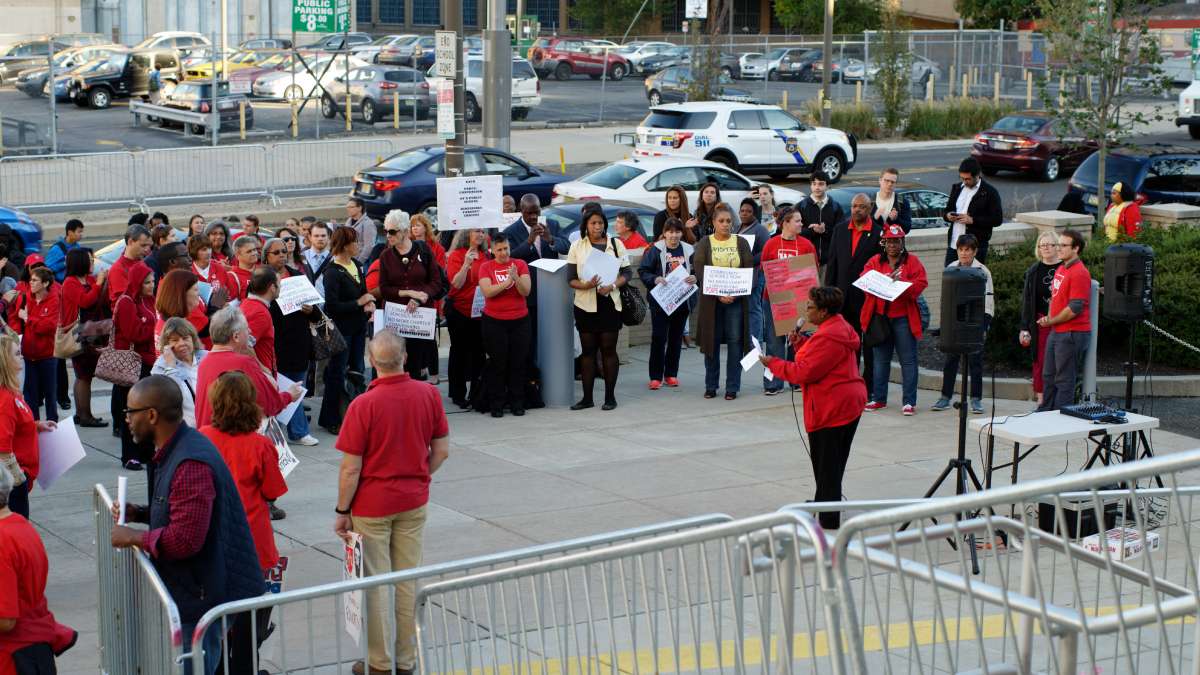
Parents, staffers gather outside SDP Headquarters on N. Broad St., ahead of the SRC Meeting on Thursday. (Bastiaan Slabbers for WHYY)
-
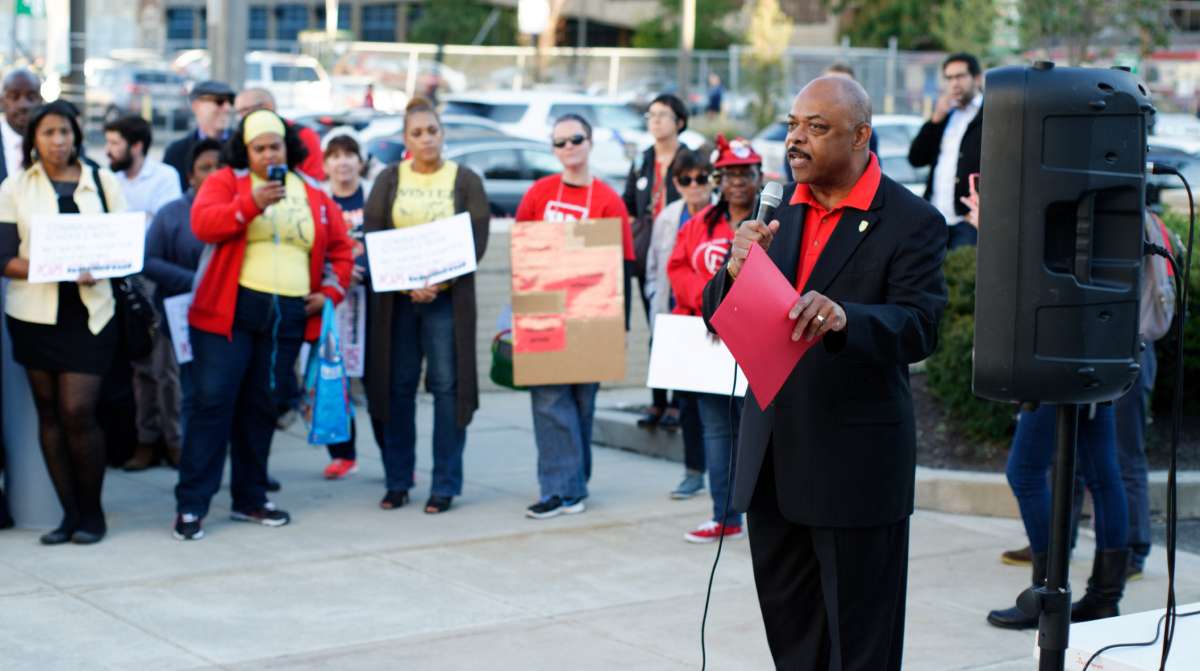
Jerry Jordan, President of The Philadelphia Federation of Teachers, speaks outside of district headquarters ahead SRC meeting in October 2015. (Bastiaan Slabbers for WHYY)
-
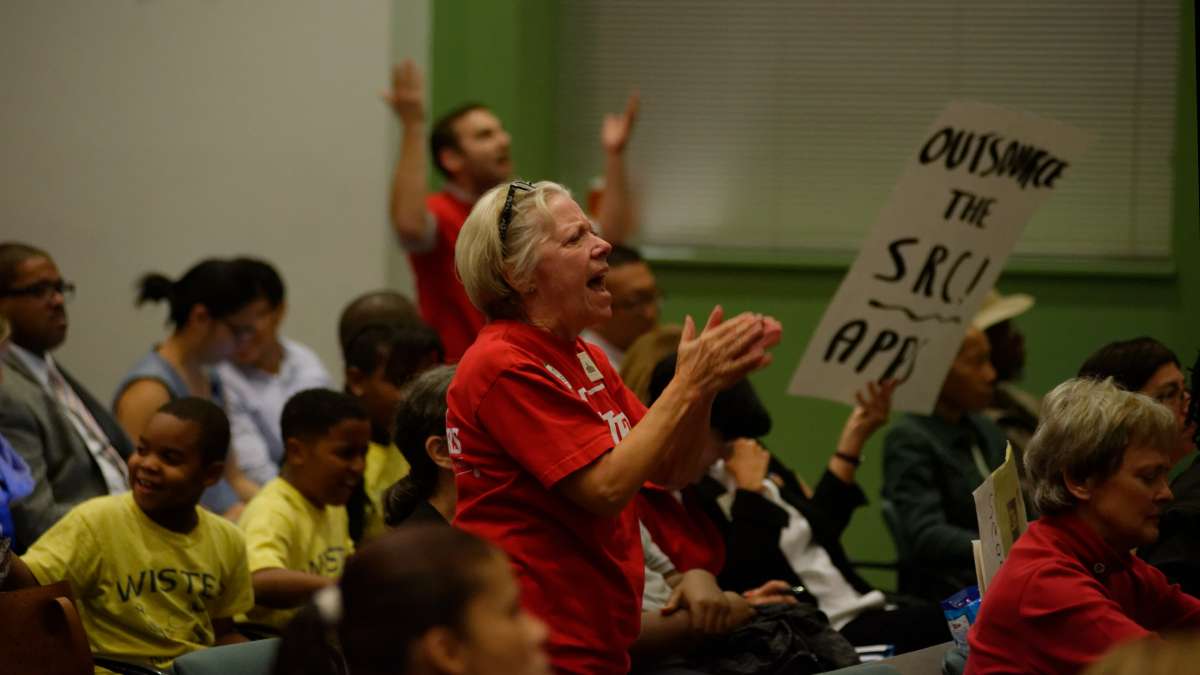
The audience is seen reacting. (Bastiaan Slabbers for WHYY)
-
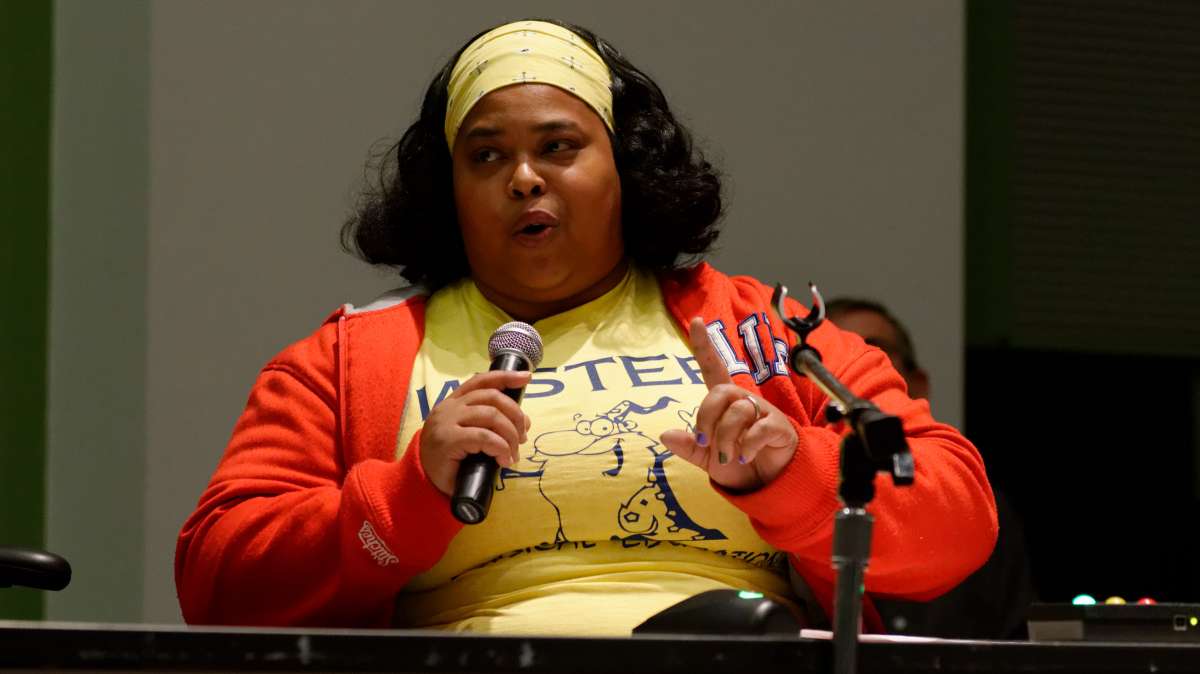
Wister parent Kenya Nation Holmes, became a leading voice against the charter conversion. (Bastiaan Slabbers for WHYY)
-
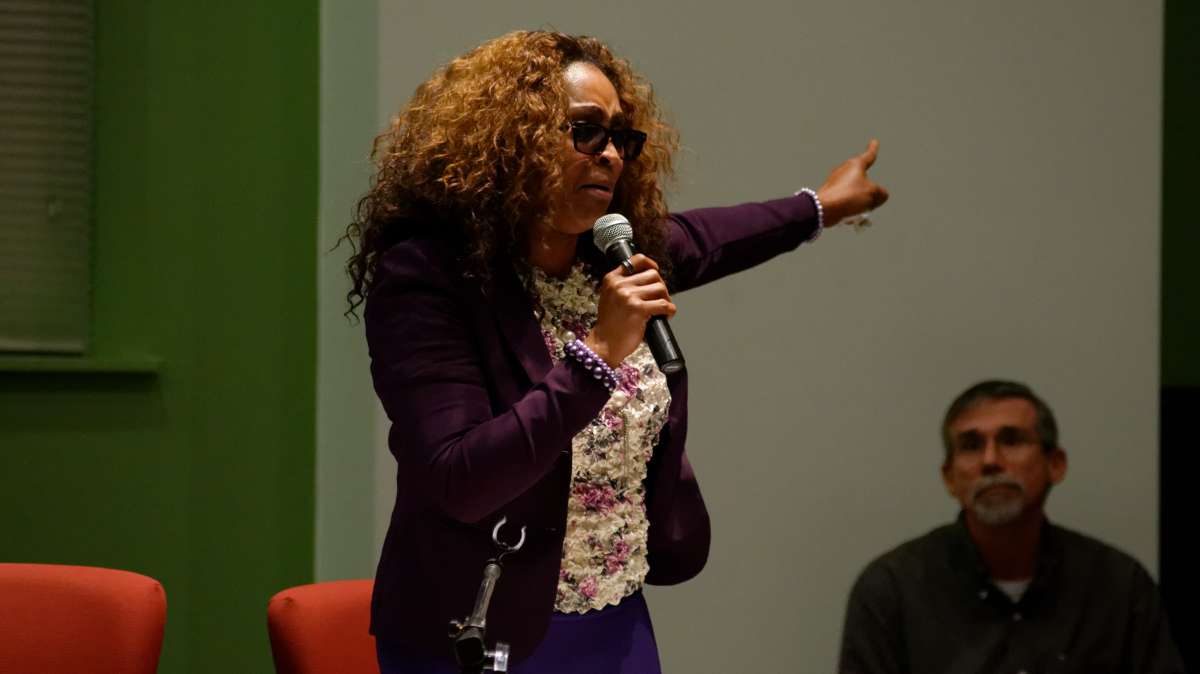
Renita Brown, Parent of a 7th grader at Jay Cooke Elem, urges the SRC to ditch the district's plan to charterize the school. (Bastiaan Slabbers for WHYY)
Philadelphia school leaders got an earful Thursday night.
Much of the four-and-a-half-hour School Reform Commission meeting, was filled with contentious testimony.
Teachers, parents and advocates decried the shortage of school nurses and took leaders to task for their so-far exceedingly underwhelming decision to outsource substitute teaching services — leading some in the crowd to call for ousting Superintendent William Hite.
The topic, though, of most discussion was Hite’s recent proposal to convert three chronically underperforming elementary schools to neighborhood-based charters: Samuel Huey in West Philadelphia, John Wister in Germantown and Jay Cooke in Logan.
“We’re a great community,” testified Wister parent Kenya Nation Holmes. “The teachers, they’re not disconnected from the children. They really, really care.”
Cooke elementary school parent Renita Brown, who also has a child at Mastery Simon Gratz renaissance charter, brought the night’s testimony to a fever pitch as she railed against the proposed conversion, fearing it will cause needless upheaval in her community.
“This is personal for me. Our children are not cattle,” Brown screamed into the microphone.
Philadelphia Federation of Teachers president Jerry Jordan led the call to scrap the charter conversion plan and instead create community schools — a model that co-locates other social services in neighborhood schools while retaining a unionized staff.
In Cincinnati, where the model is most heralded, the city funded the initiative through a $1 billion public bond.
“It’s time to try something different. It’s time to strengthen public education in Philadelphia through community schools, as has been done in Baltimore, Chicago, St. Paul and Cincinnati,” said Jordan.
Some parents testified to their positive experiences with charter conversion. Grandparent Elizabeth Moffitt praised Mastery’s Mann renaissance charter elementary.
“No one expected a magic wand to be waved and suddenly all the students would be performing on grade level. But real evidence of gains in social and academic performance were achieved. Incidences of violence were reduced to practically nothing,” said Moffitt. “Parents in the neighborhood who saw these improvements brought their children who were attending schools outside the neighborhood back to our neighborhood school.”
After the public comment ended, Superintendent Hite responded to the critics.
“I think its really important to ask the questions of why — at the schools that are serving minority children — we haven’t been able to determine or figure out how to teach them to read or do math,”said Hite. “These children were not performing even when we had the resources many of you were describing that we had in our schools.”
Many in the crowd criticized the district for precluding parents from voting against the potential charterization of their school. Last year conversions were put to a parent vote, but that’s not part of the process this time.
Central High School history teacher George Bezanis chided the district for this, as well as the very nature of the SRC — which, unlike all other school boards in the state, is appointed, not elected.
“You mock the democratic citizens of this city by using Independence Hall in the School Reform Commission’s logo. Guantanamo Bay would have been a better choice,” said Bezanis to a roar of laughter from the crowd.
Others faulted the district for making parents jump through hoops in order to attend community meetings about the proposed conversions. The meetings were not held at the schools targeted for conversion and parents had to call a special hotline number to get the exact meeting location.
In an interview after the meeting, SRC Chair Marjorie Neff agreed.
“We have to do better. It shouldn’t be that convoluted to get involved in a meeting about your school,” said Neff.
Despite statistics showing that, overall, the district’s 20 renaissance schools have improved experiences for children academically and culturally, some providers have fallen well short of expections. Only Mastery has demonstrated and maintained significant academic gains.
WHYY is your source for fact-based, in-depth journalism and information. As a nonprofit organization, we rely on financial support from readers like you. Please give today.





